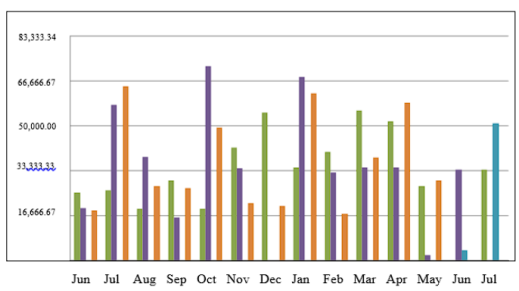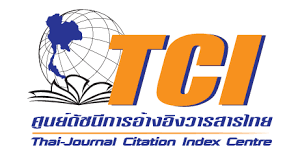Food Waste Management from the Airline Caterers
doi: 10.14456/mijet.2022.10
Keywords:
food waste, airline caterer, reduction, reuse, recycle and disposal or landfillAbstract
The food waste crisis is a major problem affecting the world, about one third of the world's food is being lost and discarded. And food waste has been recognized in the Sustainable Development Goals with a specific target to halve per capita global food waste at consumer levels and reduce food losses by 2030. So, food waste has been neglected in aviation sector. Also, the International Air Transport Association reported that 5.7 million tons of cabin waste was generated on airlines, up to 80.5% of which was leftover food and beverages. The airline business is a capital-intensive industry that consumes a large amount of resources in order to provide its services. The provision of food for airline passengers demonstrates an unsustainable consumption and production pattern and food waste from flight catering poses a significant sustainability issue, not only because valuable caloric content is lost, but also the loss of land, water and energy required in the production of food. The objectives of this article are 1) the impacts of food waste from the airline caterers. Which affected economic and environment because of the unnecessary raw materials, that caused pollution, and 2) the food waste management guidelines to reduce the amount of discarded food with the 3Rs (reduce, reuse and recycle).
References
Thai airways, Thairath online, [Accessed: 20 September 2014].
IATA - Cabin Waste Handbook, https://www.iata.org/em/prpgrams/ennvironment/cabin-waste/ [Retrieved: August 2019].
Airline business solution, dhl_airline_brochure_en.pdf [Retrieved: April 2013].
Foundation, Outrider, "Opinion|Food Waste is the World’s Dumbest Environmental Problem," The Rising-Covering how changes in the environment impact business, technology and Politics, [Retrieved: 16 September 2019].
Food and Agriculture Organization of the United Nations, "Global Food Loss and Food Waste," UN Food and Agricultural Organization, 2011, [Retrieved 9 June 2016].
Huffington Post, "Food Waste: Half of All Food Ends Up Thrown Away," 10 January 2013 [Retrieved: 5 February 2013].
Project Drawdown, "Reduced Food Waste," 12 February 2020, [Retrieved: 19 September 2020].
O. Vasso and W. Russ, "Utilization of by-products and treatment of waste in the food Industry," Springer, ISBN 978-0-387-33511-7, 2007.
Glossary, Eastern Metropolitan Regional Council, Archived from the original on 15 March 2010 [Retrieved: 25 August 2009].
Terms of Environment: Glossary, "Abbreviations and Acronyms (Glossary F)," United States Environmental Protection Agency, 2006. [Retrieved: 20 August 2009].
IATA - Cabin Waste Handbook, https://www.iata.org/em/prpgrams/environment/cabin-waste/ [Retrieved: August 2019].
S. Zafar, Food Waste Management. Bioenergy Consult [Retrieved: 25 November 2020].
M. Thamagasorn and C. Pharino, "An analysis of food waste from a flight catering business for sustainable food waste management: A case study of halal food production process," Food Waste Management | BioEnergy Consult, [Retrieved: 10 August 2019].
TTG Asia, Thai and Thai Smile join fight against food waste, [Retrieved 29 January 2020].
R. Kollau, Airline Trends, www.airlinetrend.com [Retrieved January 2016].
"Reducing Food Waste in the Commercial Kitchen is an Attainable," Goal, lionsdeal.com, [Accessed: September 2020].
Thai Airways, "Thai Airway International continues to become an airline model to reduce food waste", https://springnews.co.th [Retrieved: 22 January 2020].
A. Gavine, "Emirates Flight Catering (EKFC) uses AI slash Food waste by 35%," https://aircraftinteriorsinteriors.com [Retrieved: 11 November 2020].
Air New Zealand, "The Annual Waste Disposed by Landfill and Waste Minimization Initiatives by Air New Zealand," http://ijtte.com [Retrieved: January 2020].
COOKSMART, Vision net, "How to reduce food waste?," How to Reduce Food Waste / Cook Smart, [Retrieved: September 2020].

Downloads
Published
How to Cite
Issue
Section
License

This work is licensed under a Creative Commons Attribution-NonCommercial-NoDerivatives 4.0 International License.








